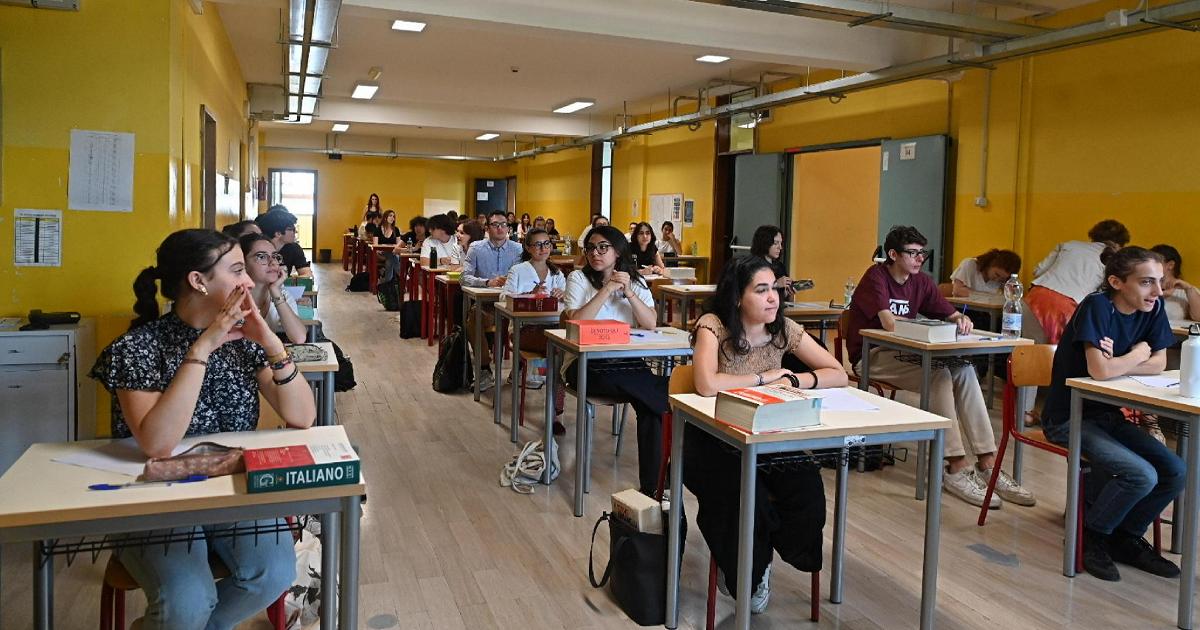Half of the students competing for high school exams has a hole the size of a house – or rather almost a century – in one's history preparation. This is the percentage of those among the students who managed to study as much as possible until the Second World War which, let us remember, ended almost a hundred years ago. This is how support is emerging for Minister Giuseppe Valditara's idea of reviewing the History programs.
Second an investigation on the Skuola.net portal – carried out on a sample of 1,000 fifth grade students – the majority of high school graduates (51%) would happily avoid wasting entire months of school in the first cycles by talking about prehistory and dinosaurs, to reach the end of the road having also systematically faced, for example, the 1970s.
Only 1 in 4 people think, on the contrary, that it is important to dwell on the distant pastas “Without knowing our roots, we can’t go anywhere”. The rest of the public (23%), however, takes a more individualistic approach, saying that “Whoever wants can immerse yourself in historical periods for yourself what interests him most”.
However, whatever one thinks, the problem exists. This can be understood by paying attention to the stories of the students themselves. Since most of them have finished the year without having been able to cover a large part of the programs in class. Coincidentally, especially in History. Less than one in two people had a teacher they could contact the objective set by the Minister: 20% stopped roughly between the 60s and 70s, 29% even ended the 20th century.
Everyone else, in view of the exam, is in a desperate situation: another 29% arrived after World War II and for the 14% the last bell rang while the teacher was still talking about the interwar period, 8% had to interrupt him even earlier.
However, a possible lifeboat for the girls and boys left inexorably behind could still be on the horizon. What is? Having found on his way a professor who, whatever the chronological treatment of history and the subject of expertise, has devoted himself independently moments of lessons to deepen key passages from the recent past or current events. And luckily there are a few: 41% of the students surveyed did it often, 38% sometimes. Thus, up to 8 out of 10 people addressed questions that could be useful to them, for example for written Italian or for the oral exam of the Maturità.
Returning to what was done in class, the situation is decidedly better on another key subject from an exam point of view: Italian literature. Here, almost 60% of students can smile: 32% completed the program and even returned to review some key authors, 27% covered just about every major author of the 19th and 20th centuries. Then there are 24% who had to interrupt their courses in the middle of the 20th century. 17% only succeeded in the 19th century and the very first part of the 20th century.
Again the more reassuring are the data concerning the “key” subjects, characterizing the different educational paths and the protagonists of the second written exam. About 3 out of 4 people have completed (or almost completed) the program. Only 12% fear they have stopped halfway, while 16% report various shortcomings.
However, the proportion of high school graduates who left aside a large part of their programs remains notable. For them, at this stage, All that remains is the pre-exam revision. What about 6 out of 10 people actually do, who will try to study the missing pieces on their own: 36% will try to do so in all subjects, 24% only in those they consider the most important.
On the other hand, 4 out of 10 will trust fate: 17% would like to try the recovery operation but already know that they will not succeed due to the limited time they have, 23% will prioritize only what is actually explained by the teacher. So fingers crossed that the content of the tests is based solely on this.
“Sooner or later, we should have the courage to change the way we teach history throughout our students' careers. It seems decidedly anachronistic that half of high school graduates have failed to tackle subjects that emerged after the first half of the 20th century in class. Also because, during the exam, you have to know facts that are not too distant in time. But, more importantly, to be conscious citizens of the present, we cannot ignore what brought us here in recent times, both within our country, see for example the years of lead, both externally, see the process of European unification that we take for granted today“, he comments on the data like this Daniele Grassucci, director of Skuola.net.

